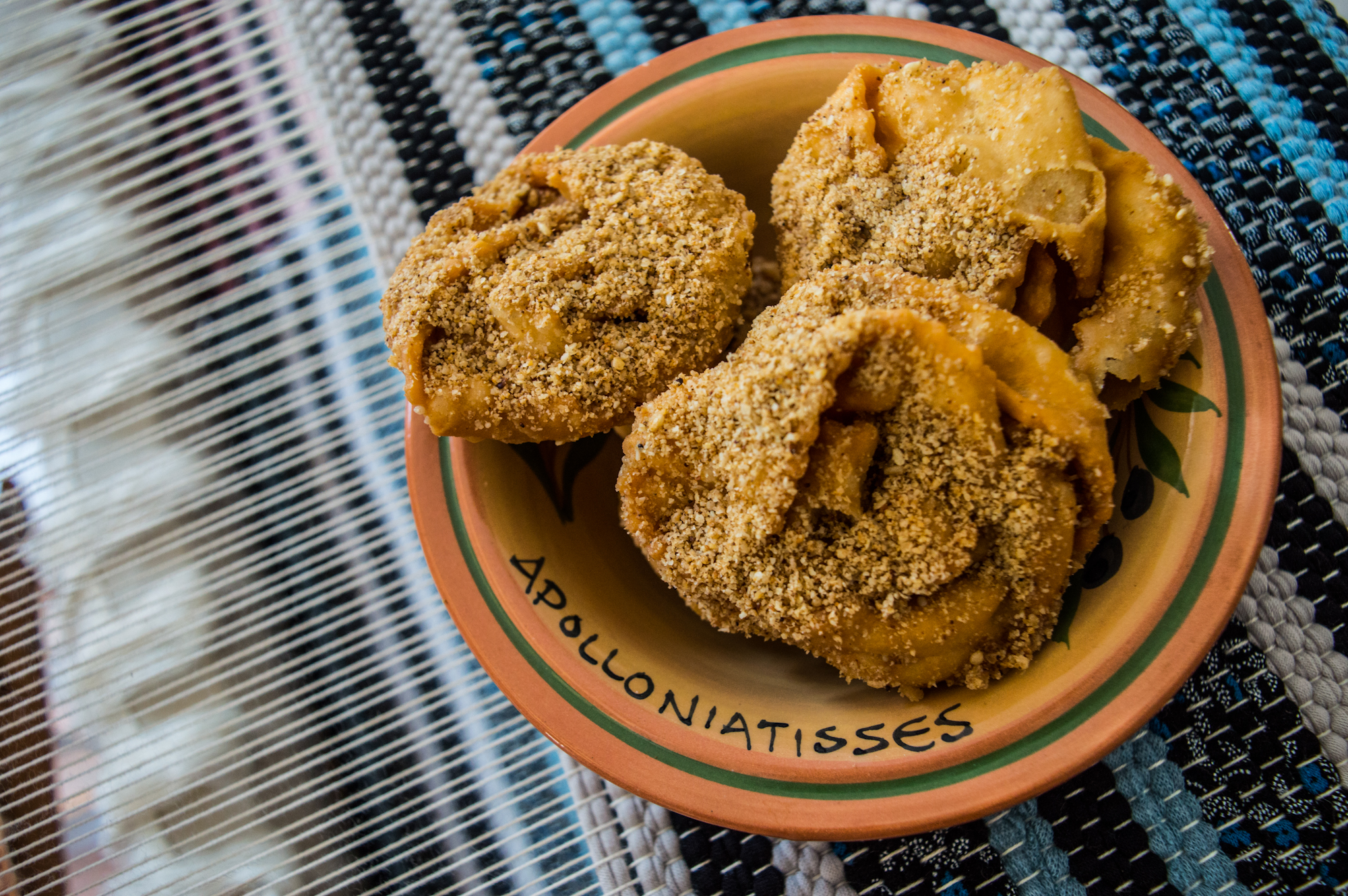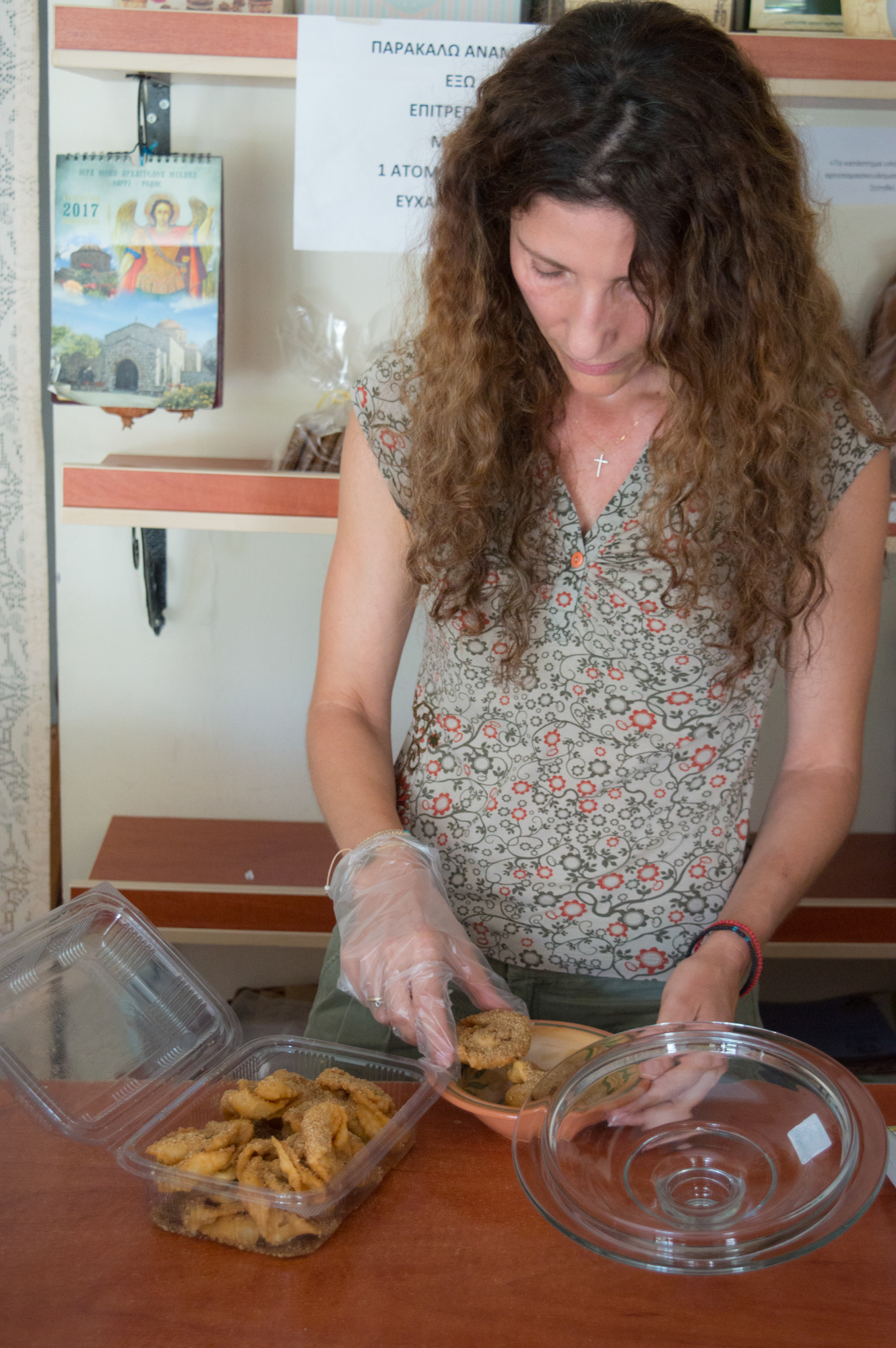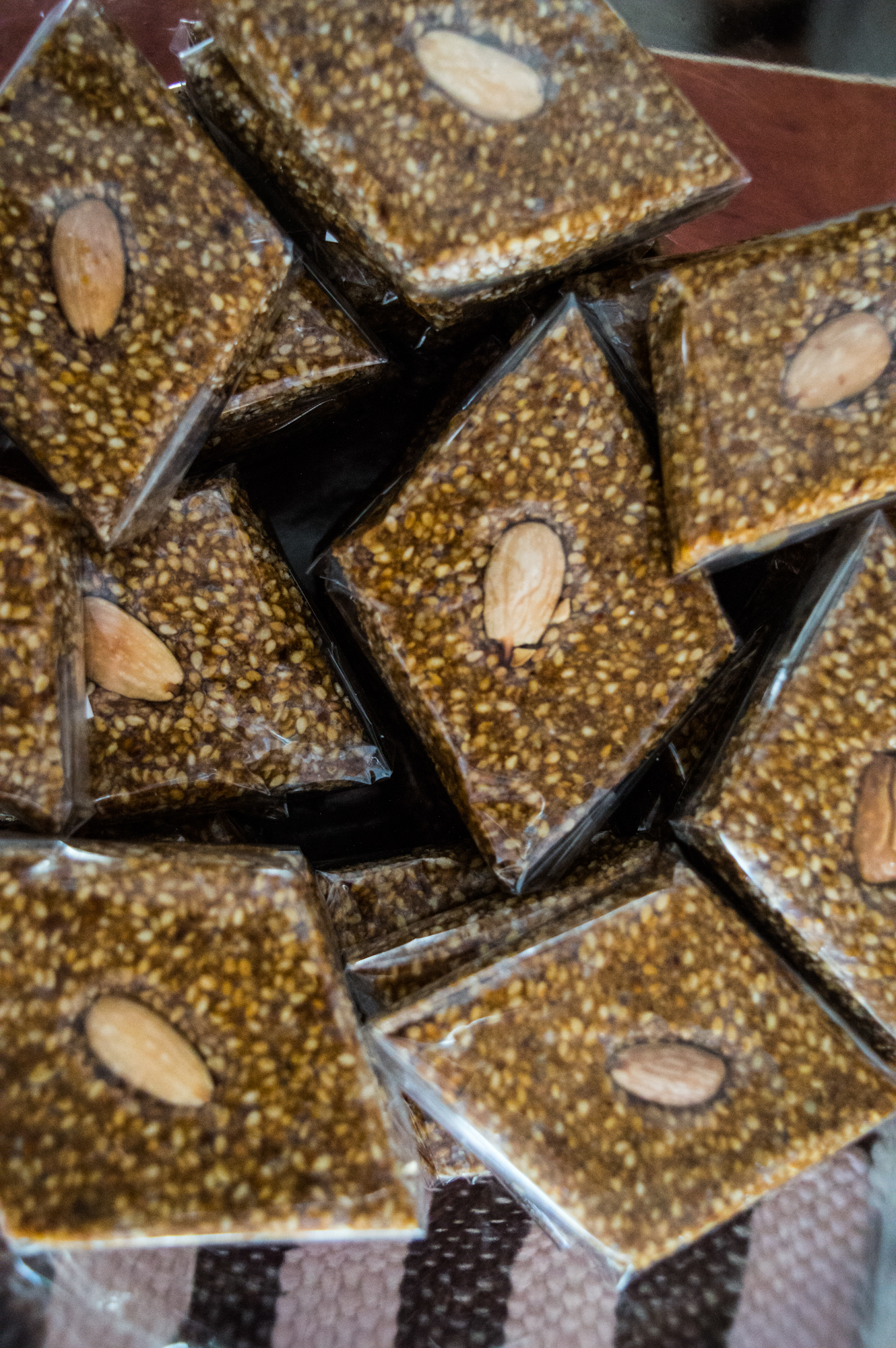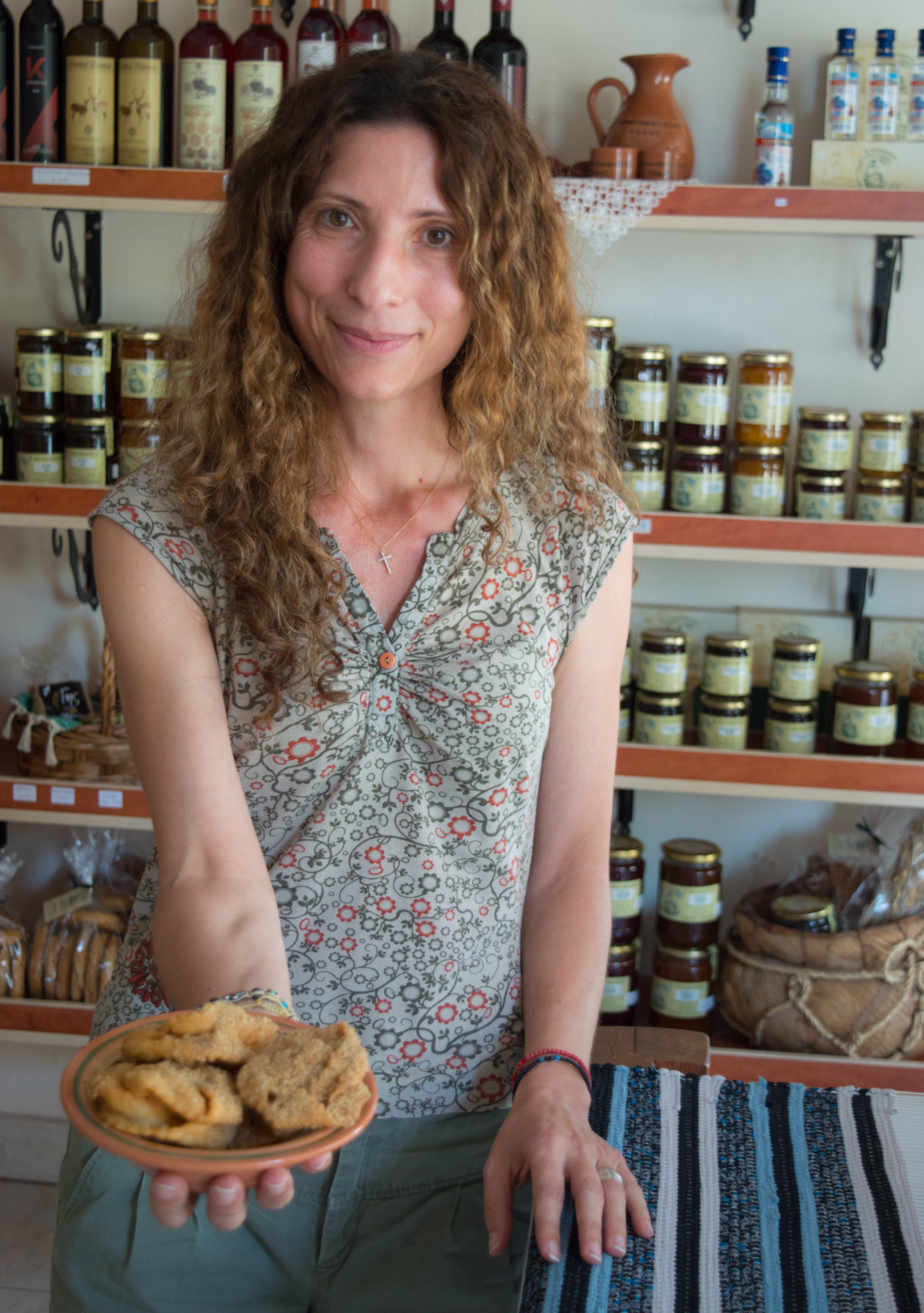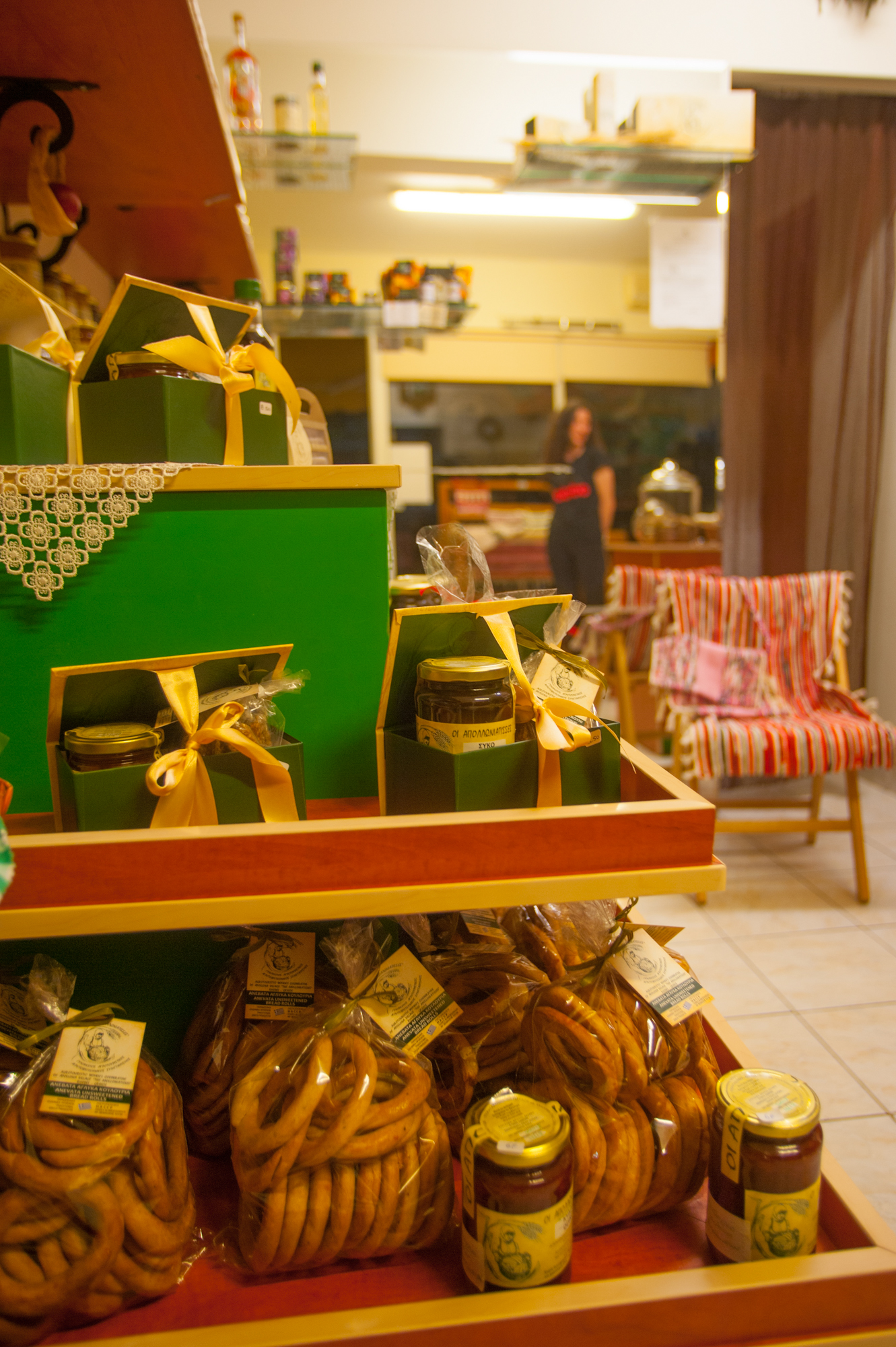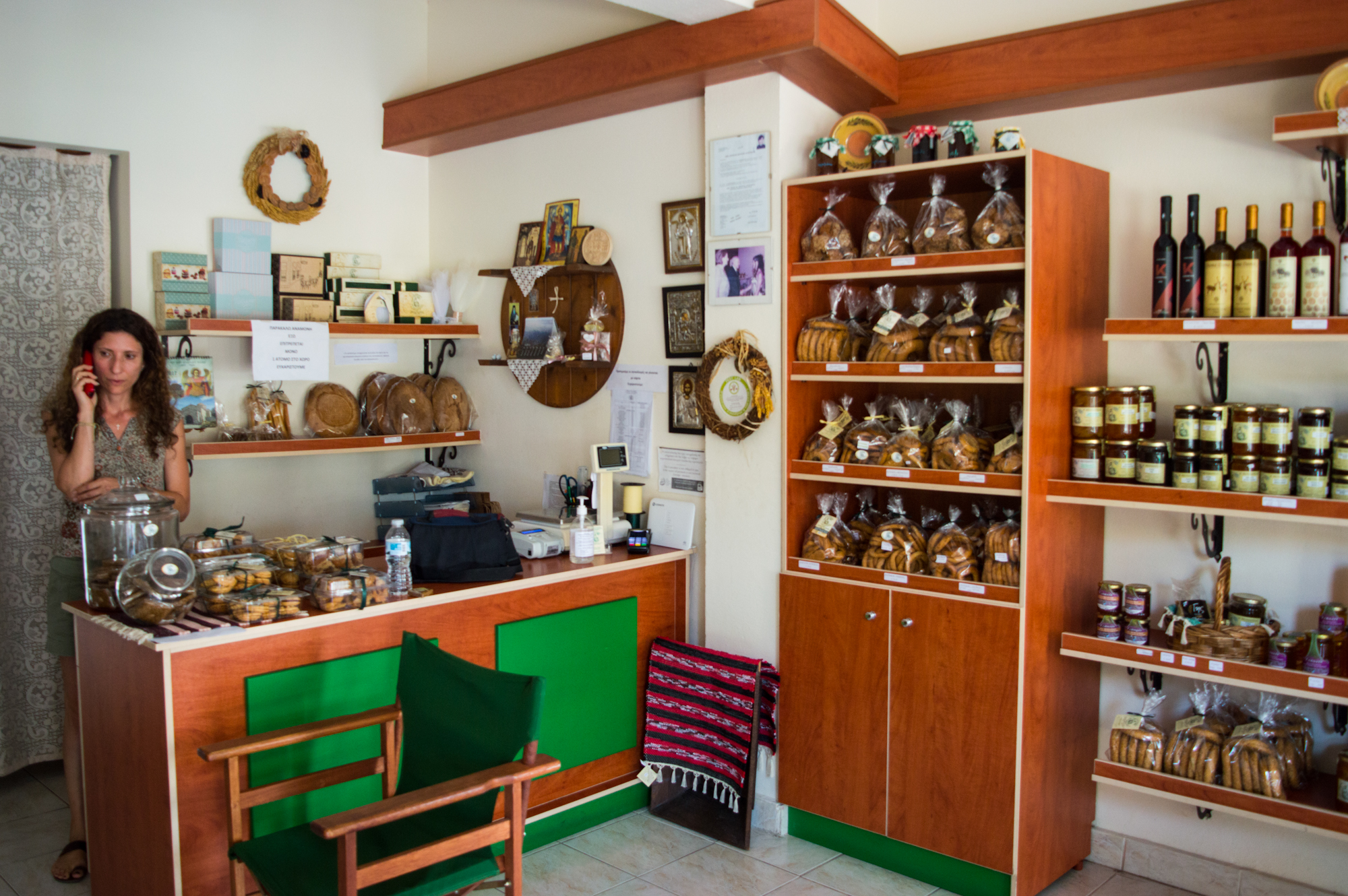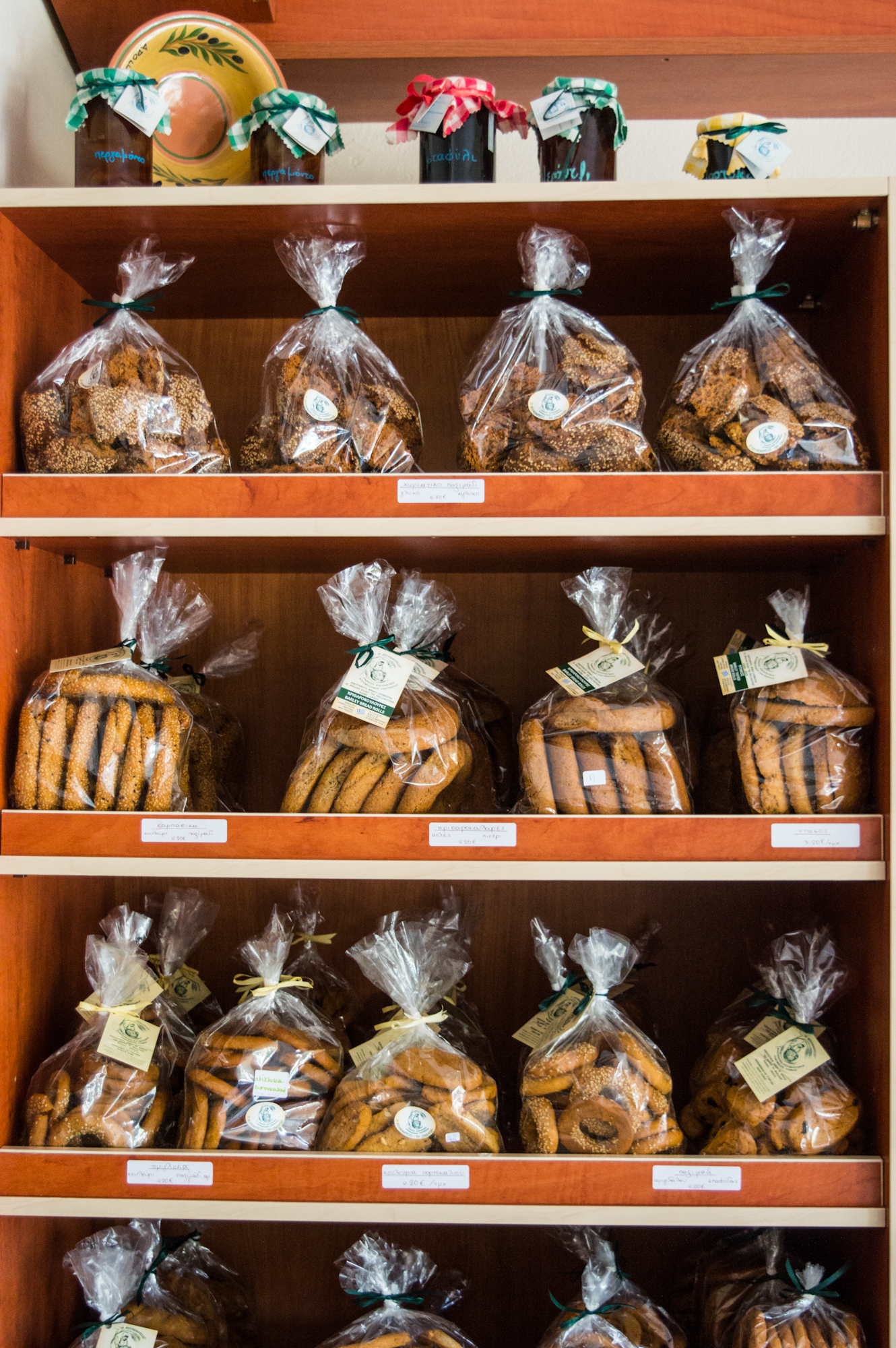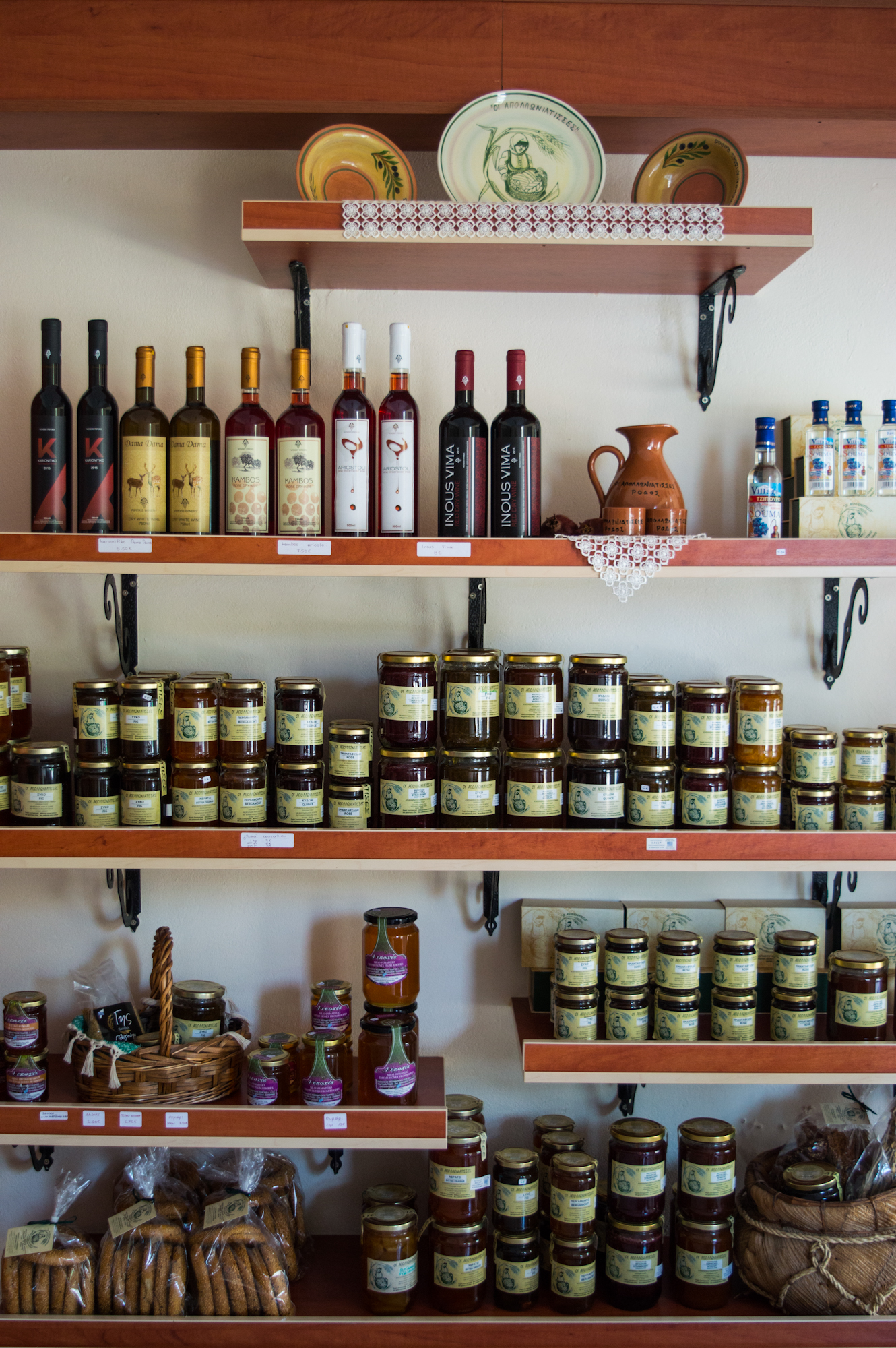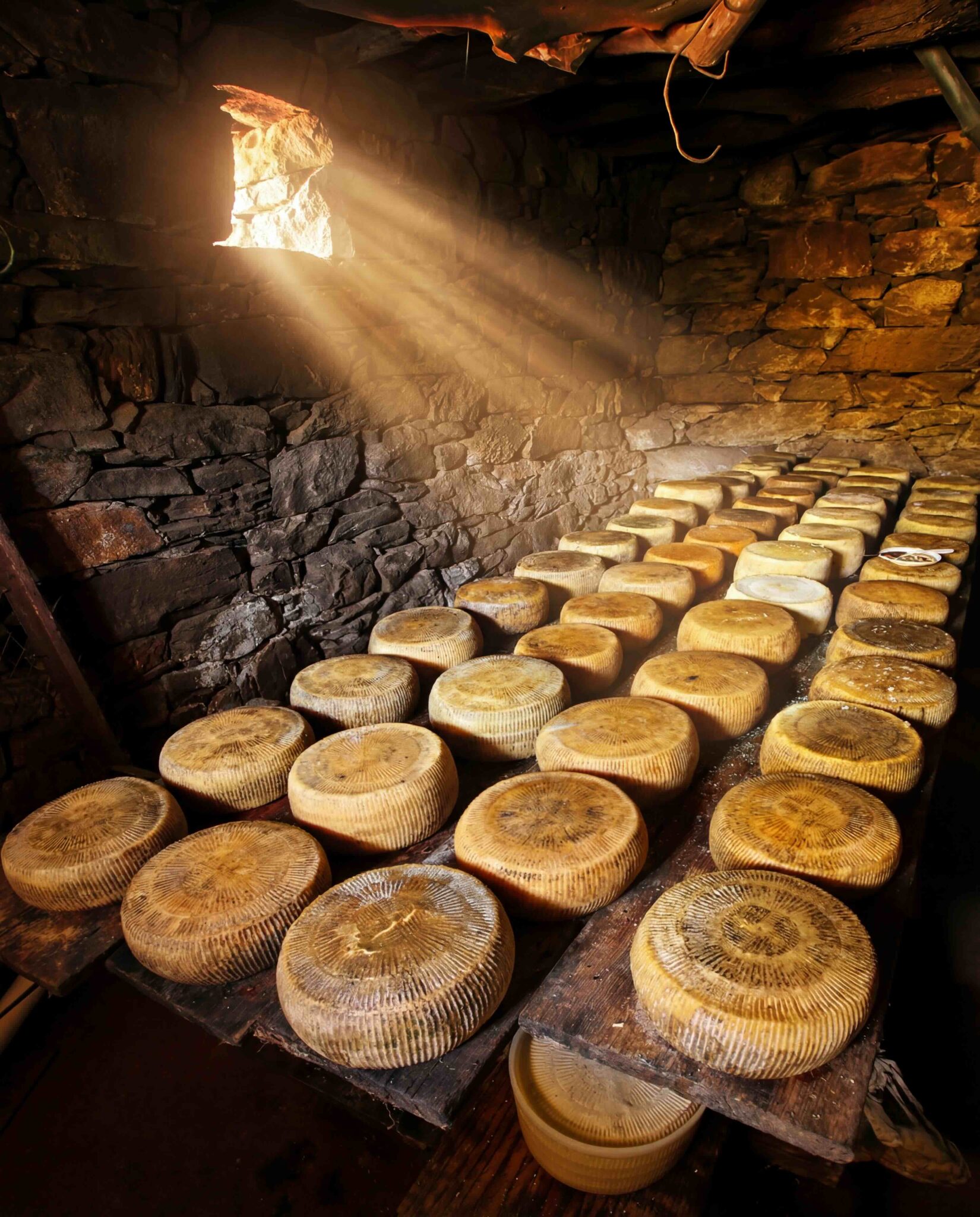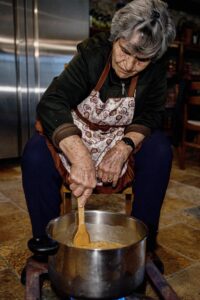When “Apolloniatisses” –the 1st Women’s Agro-industrial Cooperative of the Dodecanese prefecture- was founded in 2005, they themselves did not expect the success of their project, as 16 years later they have managed to establish themselves in the Greek market, to rapidly expand their sales abroad and to pave, through creativity, the way for a promising future.
If we consider the many attempts of Women’s Agricultural Cooperatives all over Greece, which ultimately did not succeed in the course of time, the following question comes effortlessly: What did these women do right? “Team bonding is the secret to our sustainability. It is all about love and faith in what we do”, says Eirini Platsi and continues “The project was initiated by forty women from the village of Apollonas –a gifted mountain village located 50 km from the city of Rhodes. In the end, however, only nine of us had the patience and perseverance to overcome the difficulties. Suffice it to say that in the first years of the Cooperative’s establishment we worked for free, investing all our profits in equipment and know-how. Women of all ages, without any previous knowledge in the business sector, yet, through continuous education and training (seminars, workshops) we managed to meet the socio-economic challenges of our time based on our passion, faith and creative spirit”.
Our conversation takes place in their shop in Rhodes. You see, the demand for their products was such that the original shop in the village of Apollonas was not enough. So, they opened a branch in the main town of the island. As we speak, besides all these sweet temptations around me, I also notice a functional loom. First of all I ask which of these mouth-watering delicacies has the most public appeal. “Melekouni of course” Mrs Platsi replies. “It is the traditional Rhodian treat, made of sesame seeds and honey, also mentioned in “The Iliad” as “ίνντριον”, that is, honey placenta. Many locals say that its aroma evokes memories of the feast that used to take place during its preparation, in order to be offered as a main treat at weddings.”
In 2019, following the efforts of five producers, in cooperation with the South Aegean Region, melekouni was certified as a Product of Geographical Indication, giving new momentum to its promotion.
Furthermore, “Apolloniatisses” make trahana (a type of pasta that is usually made of flour and milk or yogurt), bulgur, cookies with orange juice and olive oil, spoon sweets (traditional sweet preserves), jams, liqueurs, yeast bread, as well as exceptionally elegant bags that they weave on the loom.
It goes without saying that their products are based on pure ingredients, sourced from local producers. Everything is handmade. Their products are made exclusively in a traditional way, with no machinery. Thus, the culinary heritage is preserved, as they make sure that the recipes they inherited are passed down from generation to generation.
The unparalleled taste, however, had to be further supported by ensuring the quality, hygiene and safety of their products through the implementation of the HACCP system. Their shop in the village of Apollonas is certified by the Hellenic Food Authority (EFET), thus protecting consumers and strengthening their business status. Especially for their activities abroad, this move proved to be particularly useful, as their products are now purchased in a very satisfactory rate online.
Worthy of attention is also their environmental awareness. They use eco-friendly packaging, recycle used olive oil and participate in environmental actions organised at local level. As for their social contribution, it is a clear proof of their quality. They provide assistance by distributing food to the Red Cross, the Chronic Disease Management Clinic, indigent families and immigrants.
In addition, they actively support the efforts of the social pharmacy of Rhodes and contribute to the cultural institution and the school of the village, offering its products and services free of charge.
A few women from a mountain village of 700 inhabitants on Rhodes managed –all together and each of them individually- to contribute to the family income, strengthening the local economy, preventing the depopulation of the village, putting Apollonas on the tourist map and increasing its popularity. They have set an example. The successful business venture that “Apolloniatisses” have achieved has led to a number of publications both in Greece and abroad, and of course they are praiseworthy. As to whether they will be able to meet the very demanding challenges of the future, there can be no doubt.



